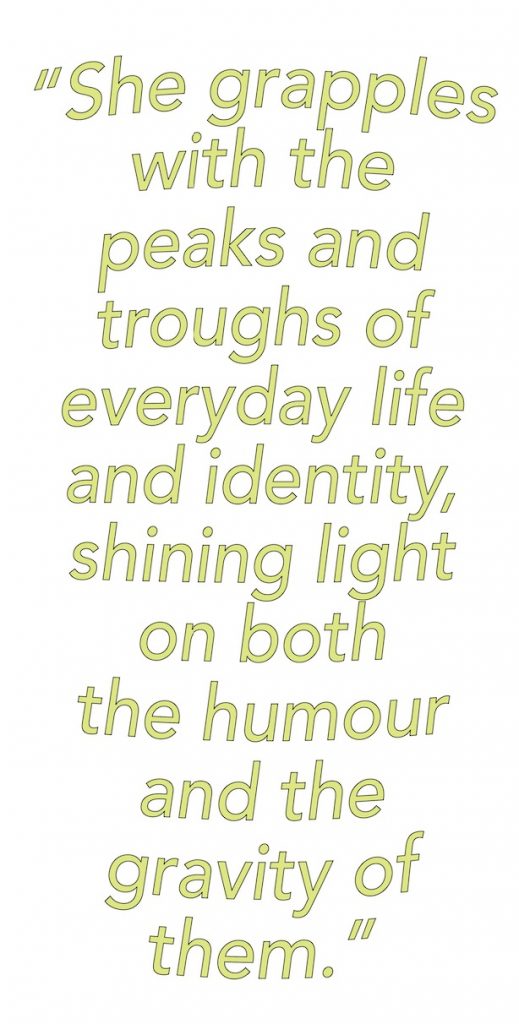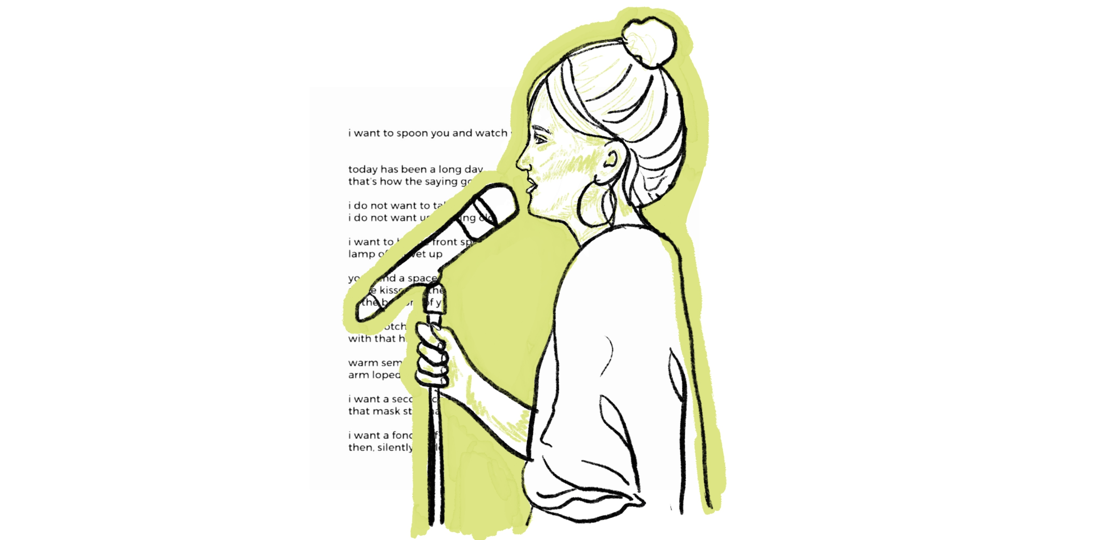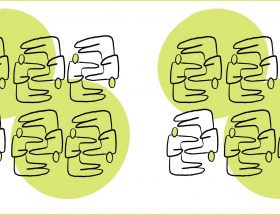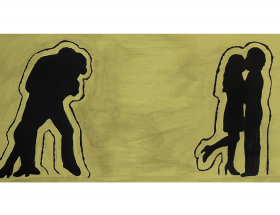As we crawl further and further into the murky depths of the technological age, it comes as no surprise that what was once deemed a quintessential part of high-brow culture-poetry- is now widely accessible through social media. We can see, with glaring popularity, a global generation of poets that are taking advantage of the digital age to share, promote, and publish their work.
Hollie McNish is one of them.
Primarily known as a performance poet (Google her and she appears nestled amongst a star-studded list of British spoken word artists, Kate Tempest, George the Poet etc…), Hollie McNish commands a vocal part of the social media space, not only through the promotion of her print publications, but in the posted excerpts of her work and her use of the ‘Instagram Live’ feature to host her own performance poetry events.

I came across McNish’s work at a conference that focused on digital poetry. The ways in which these poets claim this technological space is very particular: they present themselves as an opposing parallel to literature in print. Through said space, new readers can view a stanza with the swipe of the thumb, a double-tap of an index finger, rather than than a trawl through the often alienating formality of traditional ‘print’ poetry. It’s fascinating. One speaker briefly touched on McNish’s themes: how she swoops through a range of topics so effortlessly and succinctly, you hardly realise the plethora of subjects ‘discussed’ upon first reading.
Masturbation, cystitis, parenting, sandwiches, orgasms, journeys, love, femininity, cardigans.
McNish has an explicit ‘no holding back’ attitude. Her poems are nearly always personal, conversational, subjective, like we’re being invited into her diary entries written after tucking her children in to bed. She grapples with the taboo, burnishing the explicit and placing it on a pedestal for her readers. However, it must be noted that McNish isn’t a poet that is considered particularly serious. Yes, her writing deals with undermining toxic conventions, (read ‘white children’ or ‘foreign’), but she almost always employs humour as a device that not only seems to win over her readers, but also in many ways could be said to provide a sounding board for the gravity of these issues.
One may assume, for example, that McNish’s poem ‘In my head, I shot a woman,’ reveals psychotic and criminal tendencies. However upon reading of an Odyssean-long train journey, infant in tow, to be met with the chirping judgements of a fellow (not so fellow) passenger, the reader shares in McNish’s frustrations. The lines:
‘Advises me of the health effects of giving children too much sugar.
Says it’s a shame for the kids is all. Smiles again, a little less this time. Goes back to her book’
are clipped in their anger, but also provide enough reason for the reader to understand and share in her homicidal ruminations. It’s not necessarily unheard of, but certainly uncommon for such a confession to be revealed so explicitly.
Speaking of children, McNish often subverts the ‘happy baby, happy mum’ taglines that seem to attach themselves to so many facets of modern life. ‘Bartering with a seven-year-old’ is honest in its portrayal of modern parenthood.
‘I shared my body with you/ the least you could do is let me have a crisp.’
Her writing not only exposes the very real notion that parenthood isn’t always glisteningly easy, but that it often entails both compromise and sacrifice. The poem, ‘The kids are alright’ serves to underline this. She confessedly wishes to ‘ease [her] guilt during lockdown’ regarding how much screen-time she allows her children to have. She is open, heartfelt and chaotically honest, in a manner with which other parents can undoubtedly identify, as she notes both the positives and the negatives of new parenthood, tackling the politics of familial life.
Critic Alice O’Keefe confirms that ‘the appeal of McNish’s writing lies precisely in her willingness to let it all hang out.’ Her poem ‘Belly’ transports the physicality of this notion to my mind. This poem reads as a candid confession, one that so many will share of one’s insecurities.
‘I tell myself over and over again to be proud/ look down/ that space was a house…. some days I can’t help but frowning at the softness’
McNish does not hesitate in exemplifying her own difficulties, we’ve seen this in her anxieties on new motherhood. Here she exercises self-awareness as she ‘tells herself… to be proud,’ and is forthright in such a personal admission. Would we all just come right out and say it? Self-image and body positivity are notions (and a movement) not only inextricably linked to social media (McNish’s chosen platform) but, in a technological age where comparison and competition is key, to everyday life for the majority. This poem seems to form McNish’s demonstration of self-empowerment; she knows that exercising self-love is the right thing to do, and she’s working on it. In this way we see a poet humanised and identifiable: one that shares in our experiences.
McNish doesn’t just focus on personal exploits, but often writes truthfully about sex and the female experience. In an interview with critic Emma Cook, McNish muses, ‘I think there’s a stigma attached to writing about things related to women in poetry.’ Her poem ‘after cunnilingus’ (a topic in itself largely unspoken of in poetry) forms a solid example of dissolving such stigma.
‘When you looked up/ there was so much mess around your mouth/ you wiped a full arm swipe across your lips.’
The fact that this poem provoked some sort of shock factor within me only serves to bespeak how her themes cover, and subsequently gloss over, the taboo. Not only is her writing (like a breath of fresh air) concerned primarily with female pleasure, it is also unapologetically open about it, demanding consideration, an example to all young women.
Critics hail McNish as a poet that ‘tackles big topics,’ (read ‘Embarrassed,’ McNish’s defence of public breastfeeding) an affirmation that, at least to me, falls pithily short. She grapples with the peaks and troughs of everyday life and identity, shining light on both the humour and the gravity of them. Ultimately, she is a contemporary poet that refuses to avoid the unspoken, as her writing fixes its gaze on the unspeakable and lays its secrets bare for its readers.
Art by Jennifer van der Merwe




